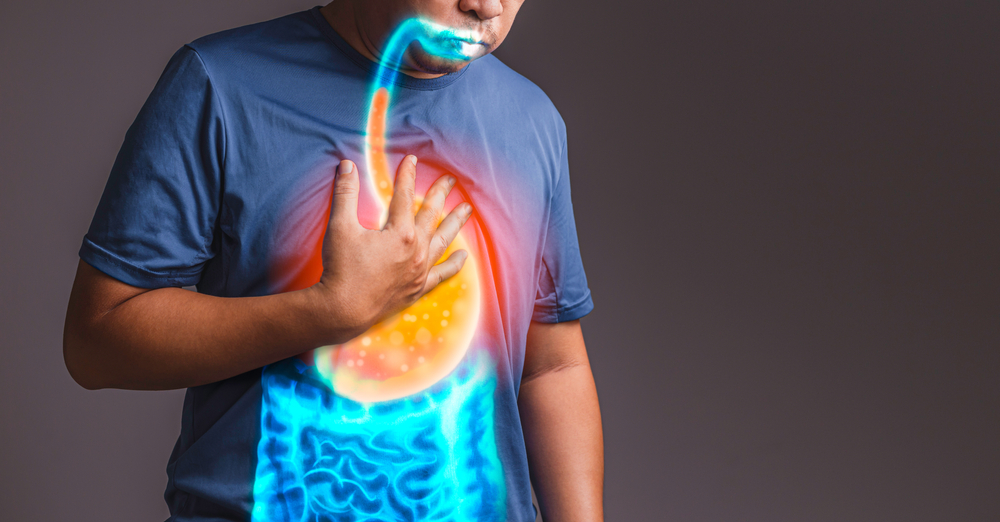Acid reflux, also called acid regurgitation or gastroesophageal reflux, happens when contents from your stomach come back up into your esophagus. If you have symptoms of acid reflux more than twice a week for several weeks in a row, it might be because you have gastroesophageal reflux disease (GERD).
According to the National Institute of Diabetes and Digestive and Kidney Diseases (NIDDK), around 20 percent of people in America suffer from GERD. If left untreated, it can lead to severe complications.
GERD Symptoms
GERD’s primary symptom is acid reflux. Acid reflux occurs when stomach contents flow back up into your esophagus — the tube that connects your throat and stomach. This causes a burning feeling in your chest or neck, known as heartburn, as well as a sour or bitter taste at the back of mouth or regurgitation of food/liquid from stomach to mouth.
Some other symptoms of GERD include:
- nausea
- chest pain
- pain when swallowing
- difficulty swallowing
- chronic cough
- a hoarse voice
- bad breath
GERD Treatment Options
To reduce GERD symptoms, your doctor will likely recommend some lifestyle changes, such as:
- maintaining a moderate weight, if applicable
- quitting smoking, if you smoke
- avoiding big, heavy meals in the evening
- waiting a few hours after eating to lie down
- elevating your head during sleep (by raising the head of your bed 6-8 inches)
Medication
The medications below can all be taken over-the-counter (OTC). However, they also come with potential side effects. To see which one is right for you, speak with your doctor.
Antacids
Antacids are only for mild and infrequent heartburn or acid reflux, but if you need them often, it’s time to speak with your physician about a stronger medication.
H2 receptor blockers
As their name suggests, acid reducers stop your stomach from producing too much acid. There are two types of H2 blockers: those you can buy over the counter (OTC), and prescription forms. Recently, the FDA recalled ranitidine— also known as Zantac— because it contains N-Nitrosodimethylamine (NDMA). NDMA is a harmful ingredient that has been linked to cancer.
Proton pump inhibitors (PPIs)
Proton pump inhibitors (PPIs) such as Prilosec are more effective than H2 blockers in reducing stomach acid and healing esophageal tissue damaged by GERD.
The GMI Research Centers are researching all types of medical conditions and are seeking new participants to join. Our studies seek to determine the safety and efficacy of an investigatory drug for the treatment of those with the disease. To see if you qualify for our study, be sure to give us a call today.


